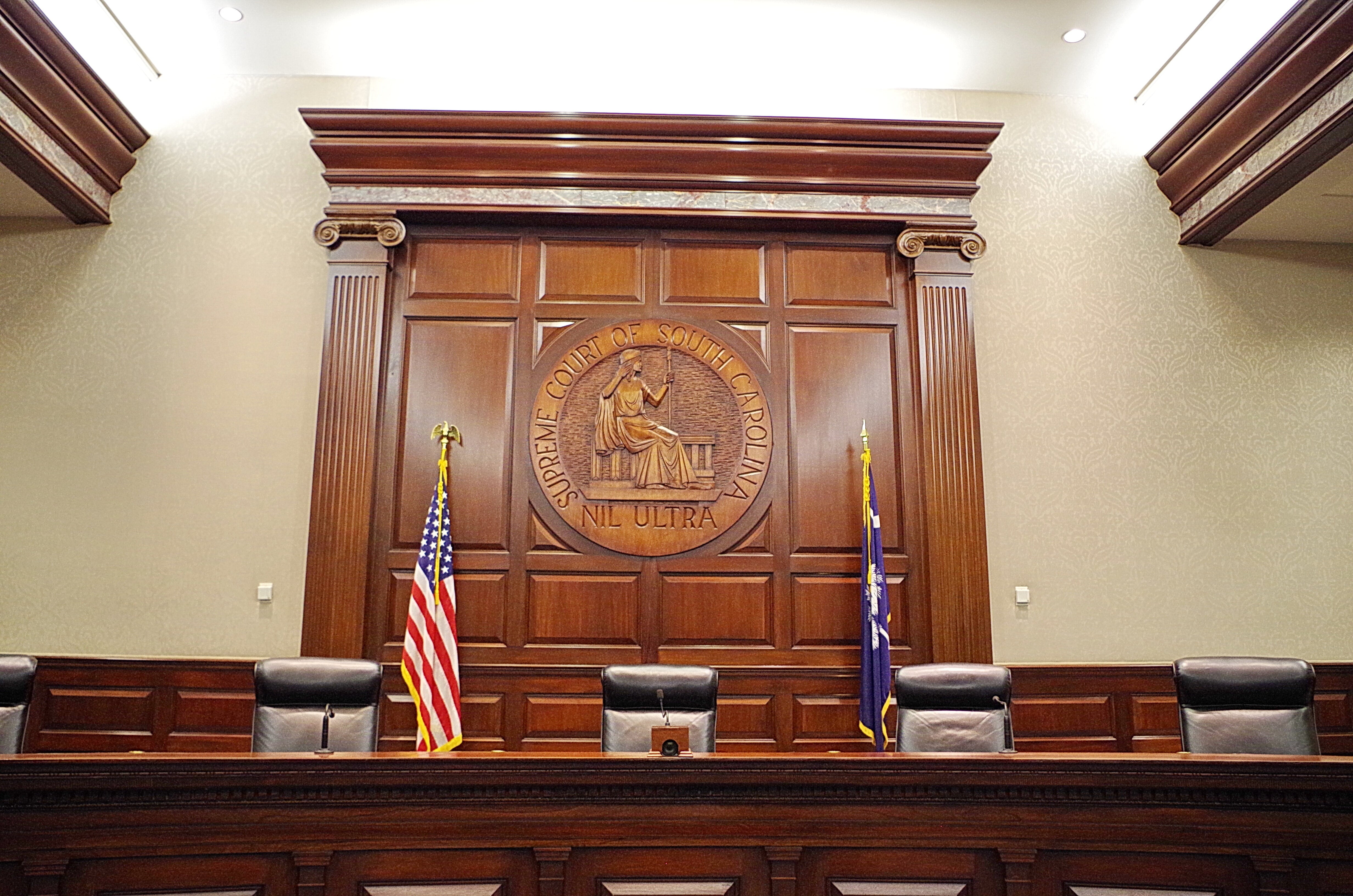Historic Judicial Reform Bill Headed to the Governor – Here’s What It Does
Late in the day June 26, the Conference Committee on S.1046, South Carolina’s judicial reform bill, reached an agreement on the final text to be sent to the Governor. Shortly thereafter, both legislative chambers approved the conference report unanimously. The bill now goes to Governor McMaster’s desk, where he is expected to sign it into law.
Make no mistake, this is a tremendous victory, one that naysayers said could never happen. It has been a long journey to get here. Palmetto Promise first advocated for reforms to the Judicial Merit Selection Commission (JMSC) in our January 2021 report Judging the Judges, in which we highlighted the shortcomings of the existing judicial selection system. In that report, we were the first to propose many changes the General Assembly adopted in S.1046.
In 2024, our team has followed the legislative process closely, as the House’s Ad Hoc Committee took public testimony and both chambers drafted their own proposals to improve transparency and accountability in the process by which South Carolina selects our state judges. We provided legislators in both chambers copies of our comparison between the House and Senate’s bills, along with our top 10 recommendations for the final legislation. Additionally, we testified before the House Judiciary Committee highlighting our recommendations.
The final conference report combined the House and Senate’s versions of S.1046, with more of the Senate’s provisions adopted overall.
HERE’S WHAT S.1046 INCLUDES:
- ADDS EXECUTIVE APPOINTMENTS TO THE JMSC: The Judicial Merit Selection Commission, which screens judicial candidates, will now be made up of 12 members, with 4 members appointed by the Governor, 4 appointed by the Speaker of the House (3 of whom must be Representatives), and 4 appointed by the Senate (3 of whom must be Senators). All the nonlegislative members must be members of the South Carolina Bar with at least 10 years’ experience.
- ENSURES JMSC ETHICS: The bill states that no person may be appointed to the JMSC if they, in the most recent election, contributed to the campaign of the person appointing them to the JMSC (whether the Governor, Speaker of the House, President of the Senate, or Chairman of the Senate Judiciary Committee). Additionally, JMSC members cannot seek judgeships themselves while on the JMSC or for one year after their service. JMSC members’ family cannot be appointed to a judgeship while their relative serves on the commission. These measures ensure that judgeships are not being handed out as personal favors.
- TERM LIMITS JMSC MEMBERS: Under this system, no judicial candidate will appear before the same JMSC twice. Members will serve two year terms and are limited to two terms of service. These terms are staggered, so part of the JMSC will rotate off every single year. That way, if a lawyer JMSC member appears in a courtroom before a judge they helped screen, the judge will be less incentivized to rule in favor of the JMSC member for fear of losing their seat in the next judicial election.
- BRINGS DAYLIGHT INTO THE JMSC PROCESS: Screening judicial candidates should be done in the sunlight, and this bill requires that all JMSC meetings livestream their proceedings. The bill also strikes a code section that allowed the JMSC to remove the “public hearing” component from the screening process on certain candidates; all judicial candidates must have a public hearing when being screened. And it requires the JMSC to disclose to the General Assembly exactly why any candidates were deemed unqualified, instead of the current system that allows rejection with no explanation.
- ACCOUNTABILITY FOR JUDGES: Unlike the current system, where often judges’ disciplinary records are never shared with the General Assembly or the JMSC during their reelection candidacy, S.1046 requires all candidates for judicial office to disclose “any sanctions, including private reprimands” to the JMSC as part of their investigation. S.1046 also requires the adoption of a review process for judges’ performance when they are at the midpoint in their term, the results of which will be shared immediately with the Chief Justice and be provided to the JMSC upon the judge’s screening for reappointment.
- RAISES THE CAP TO 6 CANDIDATES FOR EACH JUDICIAL SEAT: In both chambers’ deliberation, there was a lot of discussion on whether to raise or simply remove the cap on the number of candidates advanced for each judicial seat. In the end, legislators doubled the cap from 3 to 6, a change that means the JMSC will not be acting to narrow down the field of judicial candidates advancing to the floor but simply to determine whether candidates are qualified or unqualified for office, leaving the full General Assembly to make the determination of who should serve on the bench. Judicial candidates will now be allowed to seek multiple offices, a change that makes sense with this raised cap. Additionally, the General Assembly is given a longer window between when the JMSC’s nominations are released and when judicial elections are held, giving legislators more time to carefully read candidates’ nomination packets and consider which candidate to support.
- CUTS BACK ROOM DEALING: South Carolina has had issues in the past with legislators pressuring judicial candidates to withdraw or negotiating deals with each other by promising to vote for certain candidates next time around (a practice known as “logrolling”). The new law makes sure legislators cannot trade pledges with each other to vote for legislation or other candidates “now or in the future” in exchange for votes or for persuading a candidate to withdraw. These provisions make it a much more honest process. The bill also lays out clear guidelines for when judicial candidates may campaign and when legislators can campaign on their behalf and it creates a clear window when judicial candidates can withdraw from the process (while also requiring that the JMSC retain all their records in case any questions come up later about why someone withdrew).
Every single one of these reforms is something that Palmetto Promise championed, either in Judging the Judges or in our top 10 recommendation list. We are very pleased to see the General Assembly produce such a transformative piece of legislation.
Unfortunately, the crucial issue of the magistrate system failed to make it into the final bill, but legislators in both chambers have agreed to file independent legislation specifically addressing magistrate reform next year. Read more about why magistrate reform is so needed.
S.1046 brings accountability and transparency to the Judicial Merit Selection Commission process and how South Carolina judges are selected and perform on the bench. We are so grateful to all the legislators who championed this issue over the 2023-24 legislative session, particularly Speaker Murrell Smith, House Judiciary Chairman Weston Newton, Senate Majority Leader Shane Massey, Ad Hoc committee chair Tommy Pope, Representative and now Senator-elect Jason Elliott (a key force behind the scenes), and so many others on the House’s Ad Hoc Committee and Senate’s working group. Governor Henry McMaster and Attorney General Alan Wilson have also been stalwart advocates for judicial reform.
South Carolinians deserve to know that their justice system is free from corruption and the threat of corruption. S.1046 restores integrity to the process and moves South Carolina toward a judiciary that ensures liberty and justice for all.





